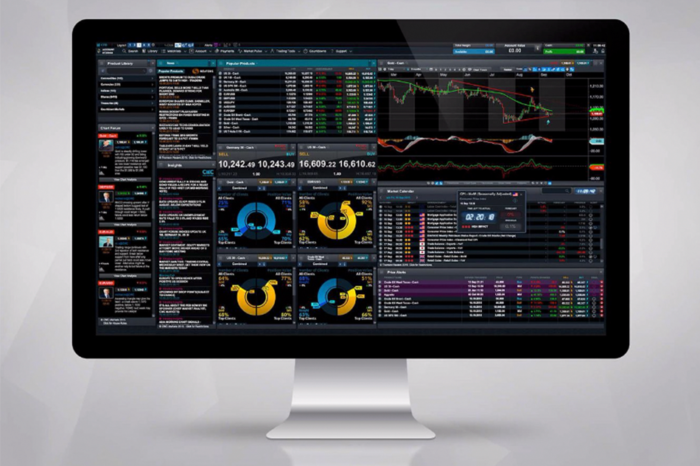At one time, the stock market was the sole domain of wealthy traders and bankers. Accessing its vast liquidity had been restricted to those with influential connections or sizeable personal finances. The only means to actively invest was through the dedicated use of a personal computer or a third-party adviser. This has all changed due in large part to the rise of mobile trading applications. How have these clever gadgets transformed the entire sector and what can investors expect in the coming years? Let’s take a quick look at how the diminutive app continues to influence the modern financial world.
A Growing Popularity
We first need to appreciate the fact that the growth of the financially oriented mobile application has directly paralleled the industry as a whole. To put this observation into perspective, it has been found that there are no fewer than (approximately) 268 billion downloads currently available. This equates to a total market capitalisation of a staggering $77 billion dollars. Larger financial portals such as CMC Markets have not failed to take advantage of such a burgeoning sector. By providing users with dedicated trading applications, even average individuals are able to enjoy real-time interactions with the global marketplace.
What Can Financial Trading Apps Offer?
Of course, the most notable benefit of any financial trading application is the ability for a user to access the markets 24 hours a day and seven days a week. He or she can therefore stay on top of any late-breaking news. However, it is just as important to point out that this one-touch access is bolstered through the use of intuitive trade commands, real-time prices and expert support if necessary. User accounts are directly connected to these applications, so executing an order has never been easier. These metrics are all quite important, for highly liquid indices such as the Forex markets (worth in excess of $5.3 billion dollars) are now well within the reach of even novice traders.
Choosing the Most Appropriate Application
With so many high-tech apps in existence, how is a trader to know which one is the best option? While personal preferences always play a role, there are several other variables to account for. Is the app limited to a single smartphone operating system or is it compatible with both Android and iOS? Is there any lag time associated with the transmission of information to the user? What levels of customer support are offered? Will the application provide the same level of functionality that is associated with a PC-based trading account? Finally, what are others users saying about their experiences and are these reviews generally positive or negative?
The Future of the Trading App
Another important point to address is how these applications are expected to evolve in the coming years. As 3G and 4G communication speeds are now here to stay, they are able to handle much more data than ever before. Accurate trades are a reality and investors are able to gain access to cutting-edge information when it matters the most. Some of the benefits that we should expect to emerge also include:
- A more efficient use of big data.
- Highly intuitive applications for beginners.
- Access to live customer support via mobile devices.
- Cross-platform app integration (between computers, tablets and smartphones).
It is also impossible to underestimate the role of AI. Artificial intelligence algorithms will provide more personalised experiences and they may even allow the concept of the automated smart trade to become a reality. However, we should note that the investor will always retain ultimate control over his or her decisions. The main takeaway point is that these decisions will be bolstered through the correct deployment of AI in the future.
An Ongoing Evolution
Mobile investment applications have already changed the landscape of the stock market as we know it. As a result, the effects of this paradigm shift are still being felt. The bottom line is that there are more opportunities than ever before for those who are keen to become involved in what can only be called a lucrative financial opportunity.


